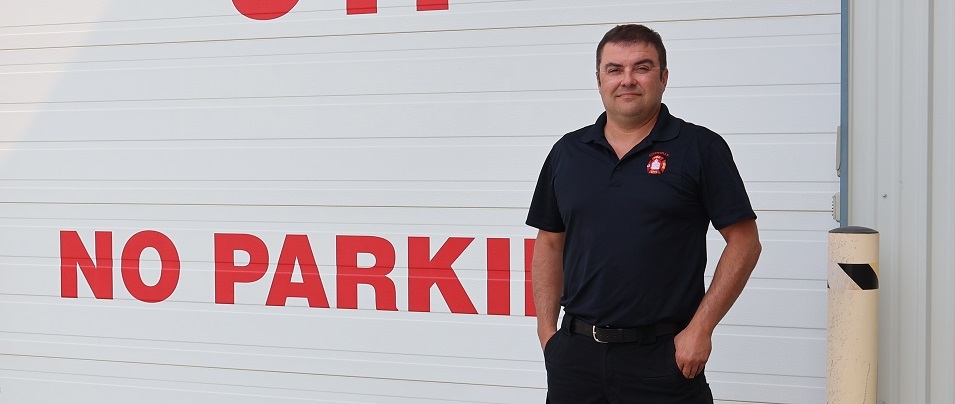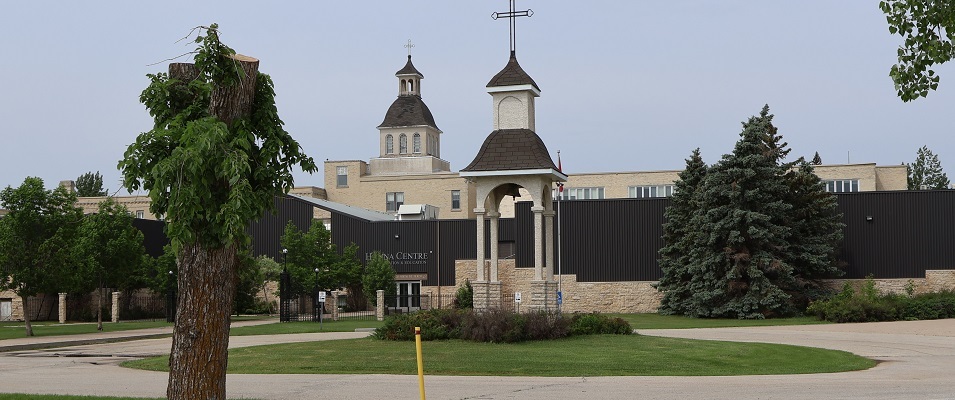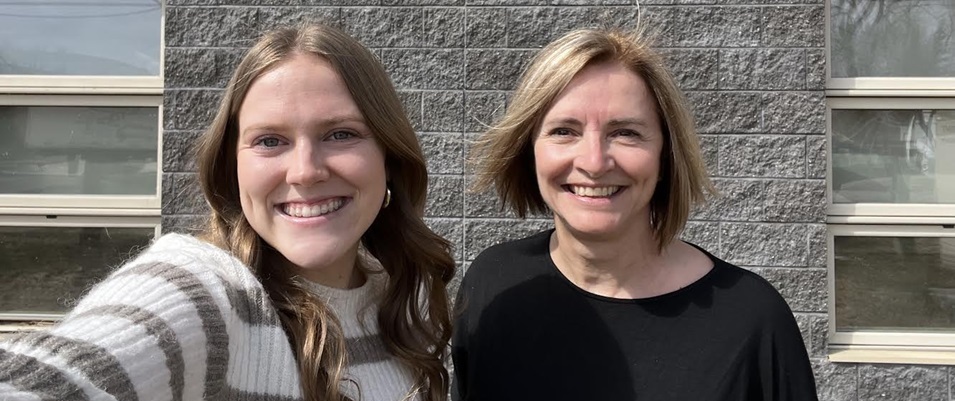
It’s fair to say that residents of Niverville find themselves in a most fortunate situation. At a time when medical services everywhere are run ragged, Niverville has access to top-notch emergency medical services (EMS) daily. These local paramedics and emergency medical responders (EMR) operate as part of the Niverville Fire and Emergency Services (NFES) team.
In the rural southeast, only the community of Emerson can boast the same level of localized medical service. Many other municipalities have no paramedic or EMR teams to arrive quickly on scene, stabilizing a patient until the ambulance arrives.
But thanks to new regulations introduced by the College of Paramedics one year ago, Niverville’s 22-year EMS program may soon be just a memory.
In 2022, the College of Paramedics, the governing body regulating EMS in Manitoba, increased the training requirements for EMR students from 150 hours to more than 300 hours.
The hours required to become a paramedic, which is a level up from EMR in medical qualifications, have also doubled.
“That’s why you’re seeing struggles with staffing levels in the ambulance services in rural Manitoba,” says Niverville fire chief Keith Bueckert.
According to Bueckert, every ambulance needs at least two licensed medical personnel in the truck to be dispatched to an emergency.
While the paramedics and EMR who are already certified won’t need to take the additional training, all new recruits will.
Bueckert says that this may not affect Niverville’s EMS in the short term, but it will, without a doubt, impede the availability of new trainees as the community grows or current members age out.
This excessive training to be a rural EMS provider is simply too much to ask, he says.
Since the announcement was first made early last year, rural mayors, reeves, and fire chiefs have been advocating for the College to reconsider their blanket ruling.
Niverville’s mayor, Myron Dyck, along with other community leaders sought support from the Association of Manitoba Municipalities (AMM). Fire chiefs and other rural medical organizations have advocated on their own behalf in the hopes that a middle ground can be found.
In late April 2023, a meeting was held in Portage la Prairie to address an alternative. Mayor Dyck and Niverville’s deputy fire chief were in attendance along with members of Shared Health, St. John’s Ambulance, the Canadian Red Cross, the Office of the Fire Commissioner, and others.
Mayor Dyck says, after a year of advocating for a compromise, the outcome was disappointing.
“At times it was frustrating because everyone wants to talk about regulation and legislation, and I think sometimes we legislate ourselves into a box where we can do nothing,” says Dyck.
In the end, the College didn’t budge from their position.
“The municipalities in attendance find that onerous,” Dyck says. “There’s training that a surgeon must have and there’s training that a nurse practitioner must have. The nurse practitioner is not a surgeon, so why now are we asking our EMR to take surgeon-like training?”
What has transpired in the way of a compromise is a proposal made by Shared Health, the medical arm of the provincial government.
If rural municipalities choose to continue to offer the quality of EMS care they do now, they will continue to be accountable to the College, paying dues and remaining hopeful that new recruits will sign up under the new training guidelines.
If they choose not to participate, the only alternative is to switch rural EMS teams to a fire-based first aid option, significantly reducing the duties that a paramedic or EMR can perform when attending a call.
This program would be overseen by an entity under Shared Health’s control. It’s unclear whether annual dues would be required.
There were other recommendations made by Mayor Dyck and others at the April meeting. So far, they have yet to be addressed.
The first is that the College provide online training options so rural students can save many hours of driving time to evening classes.
Secondly, a modular approach could be applied to medical services, similar to how fire services operate, so that more levels of EMRs are recognized.
This way, students completing different levels of the course can practice at those levels instead of having only one benchmark for achievement.
“There’s only 13 municipalities with EMS services,” Dyck says. “It’ll require an Excel spreadsheet [to manage].”
The Pros to the Current System
In order to understand the pros of keeping EMS services the same in Niverville, one has to realize what they’ve got. Niverville has a total of 38 volunteer firefighters. Twenty of them are dually trained as paramedics or EMRs.
As recognized by the College of Paramedics, EMRs have the very valuable ability to administer symptom-relief medications to patients in distress. These may include medications to ease asthma attacks, diabetic emergencies, or even reverse an opiate overdose.
They can administer ASA and nitro in situations involving the heart or epinephrine shots in the case of a severe allergic reaction.
EMRs can secure a person to the proper equipment when there’s a risk of spinal injury, making quick work of transferring that patient to the ambulance when it arrives.
They also have the training to assess each situation and determine whether a typical ambulance service is sufficient or if helicopter air ambulance needs to be called in.
Equally important is the response time of a paramedic and EMR team. Thanks to a local EMS program, the average wait time for a medical professional to be on the site of an emergency is mere minutes.
Compare that to the average 30-plus minutes it takes for an ambulance to arrive. In these extra minutes, lives can be saved and the impacts of an injury minimized.
“For ambulance service to Niverville, it’s about 30 minutes, but talking to some of these other communities, they say it’s an hour to an hour and a half,” Mayor Dyck says. “And [the administrators of our medical system] feel that that’s acceptable.”
Moving to a fire-based first aid model, the response time wouldn’t change. However, the level of service would, essentially restricting all emergency personnel to little better than basic first aid and CPR application.
According to Bueckert, the Niverville Fire and Emergency Services crew attended to nearly 350 calls in 2022. That’s almost one call per day. More than 200 of them were medical calls.
In recent months, the NFES has decided to restrict their services to the community of Niverville only, with the exception of the area to the community’s east which is being proposed for annexation.
In light of rapid community growth, the aim is to continue providing quality services without overextending the volunteers who offer them.
The Cons of the Current System
Since Niverville began its EMR service in 2000, much has changed in terms of the cost to operate such a program. There are no subsidies available from the province. All costs are borne by the municipality.
Even so, the College requires that EMS programs pay annual dues. According to Bueckert, this came to about $2,000 in total until recently when the fees were increased to $750 per EMS member per year, regardless of their volunteer status.
And whereas members were once covered under the town’s insurance umbrella, that is no longer an option. Now each member must carry their own insurance. This is another extra cost that the town chooses to carry rather than expect volunteers to bear the burden.
Additionally, the town provides remuneration on an hourly basis when volunteers are called out. There is no remuneration for being on call.
Despite these mounting costs, the cost of going backwards to a time when no EMS providers serviced the community may, in fact, be too great to consider, especially when the overall medical system is in such desperate straits.
In a Perfect World
Bueckert says that, if he had his druthers, everything would just stay the way it was. The only change that’s needed, he adds, is for oversight bodies like the College to view the program differently.
“It would be nice for them to be able to look at us more as a group of people that are trying to help our community,” Bueckert says. “We’re not doing this for the money. I don’t think the system was broken. If it needed tweaking, we could have done that.”
In the end, he’s thankful for the team of 38 volunteers that make up the NFES. Each of them work full-time jobs elsewhere and offer their services in their off-time, often at a cost to their families and social lives.
“We have such a special group of people doing this in our community,” Bueckert says. “I’m so proud of them. The people that often don’t get recognized are the families that they leave on a moment’s notice when they’re called out.”
The coming months will be interesting, he adds, as the department and town council determine where to go from here.
“We’re fighting to try and keep what we have, but there comes a point where there are some hard decisions that will have to be made,” Bueckert concludes.



















